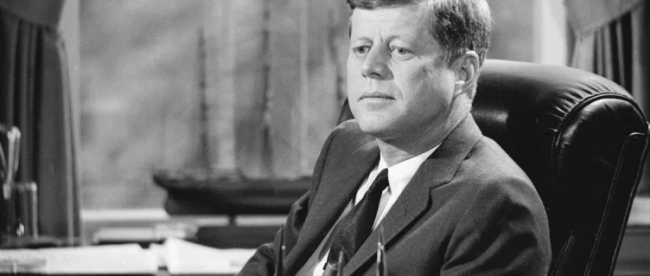The Fake Cold Moment of the Cold War

Somewhere in the world, there are high school students with a math test this afternoon. They aren’t ready for the exam, though — they didn’t study enough, or they don’t seem to get trigonometry or derivatives or whatever it is, or maybe it’s just nerves. Either way, these students have a plan: they’re simply not going to go to school today. The trick: fake an illness. A stomach ache, maybe a sore throat, perhaps claim to have a fever.
Pretending to be sick in order to get out of something — that’s a tried-and-true method which has been used for generations. And in one case, it was used to help the United States prepare for a potential war.
For a two-week period in October of 1962, the world was on the brink of nuclear war. The Cuban Missile Crisis, as it’s now known, was probably as close as the Cold War came to becoming a not-cold one. On October 15th of that year, the United States detected mid-range Soviet ballistic missile on Cuba, just miles off of the American coastline. Then-President John F. Kennedy’s advisors snapped into action, weighing alternatives, looking for a way to contain or defuse the threat.
But until the Kennedy administration had a plan in place, it was important that things move forward as per usual — there was no reason to create anxiety among the public. As a result, President Kennedy continued on with his normal activities — meetings, speeches, and the like. On Saturday, October 20th, he was in Chicago ready to kick off a six-city campaign excursion (including a stop at the World’s Fair in Seattle) when duty called. As Smithsonian reported, at 10 AM that morning, “Attorney General Robert Kennedy called to say the Executive Committee had prepared potential responses” to the Soviet/Cuban missiles.
Kennedy had to get back to Washington without tipping his hand. So, he did what high schoolers fearing that math test do: he faked a cold. As the AP reported, “Mr. Kennedy was in Chicago when his doctor found him running a bit of a fever yesterday morning and showing what was described as a slight respiratory infection.” This was a lie and the doctor was in on it, but it provided the cover Kennedy needed to return back to Washington; the doctor, per the AP, “advised the Chief Executive to cancel [the] trip.”
Kennedy did exactly that, ostensibly to get some rest and relaxation in. But the truth was the opposite. Per History, “while aides told the press that Kennedy would spend the rest of the day in bed, he instead engaged in five hours of meetings with advisers before deciding on instituting a naval blockade of Cuba.” Two days later, Kennedy told the American public about this action against Cuba, which was ultimately successful in de-escalating the threat.
A few days after that, it became clear that the cold was no more than a ruse. No one seemed to care, though; the fakery was generally seen as justified.
Bonus fact: The Christmas song “Do You Hear What I Hear?” (listen here) is a classic, commonly heard during the holiday season. It wasn’t exactly intended to be a Christmas song, though. The composer, Gloria Shayne, and the lyricist and her then-husband, Noël Regney “intended [the song] to be a plea for peace,” according to the New York Times. The pair sat down to write the song during the Cuban Missile Crisis and were hoping that it would help people find commonality in a world on the brink. While the missile crisis abated for the most part before the song hit airwaves that Thanksgiving, the intent behind it was something Shayne and Regney never let go of. Shayne would later say (via the Los Angeles Times) that while she thought the song was “beautiful,” the two “couldn’t sing it [live], though. . . . Our little song broke us up. You must realize there was a threat of nuclear war at the time.”
From the Archives: How the Aurora Borealis Almost Sent Humanity Over the Brink: The other missile almost-crisis.
